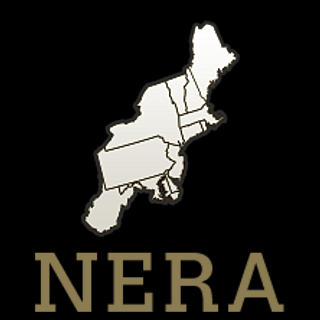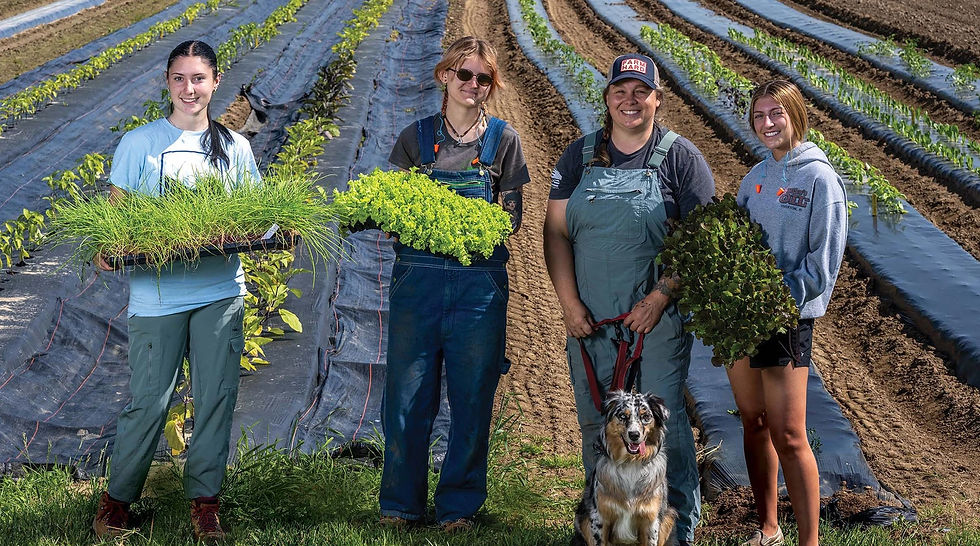Guardians of Our Food System: How Northeast Land-Grant Universities Are Protecting Pollinators
- nerasaes
- Mar 11, 2025
- 3 min read
Updated: Apr 28, 2025
Article by Stacey Stearns, UConn Extension

Ensuring a Future for Pollinators and Agriculture in the Northeast
Pollinators are the unsung heroes of our food system, ensuring the production of fruits, vegetables, and countless other crops. Yet, habitat loss, climate change, and pesticide exposure are threatening their survival. Across the Northeast, Land-grant universities are leading innovative research and outreach efforts to protect these critical species, supporting both biodiversity and sustainable agriculture.
Pennsylvania: Penn State’s Innovative Approach to Pollinator Health
At Pennsylvania State University, researchers are leading efforts to protect pollinators through cutting-edge science and community-driven solutions. Penn State’s Center for Pollinator Research is at the forefront of studying bee health, examining factors such as habitat loss, disease, pesticides, and resilience. Their research has been instrumental in identifying best practices for maintaining robust pollinator populations while supporting agricultural productivity.
One of Penn State’s key initiatives includes Bee Monitoring Programs, which engage citizen scientists and beekeepers in tracking pollinator populations across the state. Additionally, their Extension programs provide hands-on training for farmers, landowners, and gardeners on how to create pollinator-friendly landscapes.
Delaware: Sustainable Landscaping for Pollinator Habitat
The University of Delaware is championing sustainable landscaping techniques to create pollinator-friendly environments in urban and suburban spaces. Their research has shown that homeowners, businesses, and municipalities can support pollinator populations by planting native flowers, reducing pesticide use, and maintaining diverse green spaces. Through Extension programs, Delaware researchers are empowering communities to take action, reinforcing the Northeast Agenda’s focus on environmental and community health.
Maryland: Strengthening Bee Populations Through Education and Extension
The University of Maryland is taking a proactive approach to supporting beekeepers and farmers through hands-on education. Their programs provide training on pollinator health, pest management, and best practices for maintaining thriving bee colonies. By connecting research to real-world application, Maryland’s efforts ensure that pollinators remain a cornerstone of the region’s agricultural success, reflecting the Northeast Agenda’s commitment to science literacy and sustainable food systems.
Connecticut: UConn’s Research and Extension to Protect Pollinators
At the University of Connecticut and Connecticut Agricultural Experiment Station, scientists and Extension specialists are working to safeguard pollinators through research, education, and community engagement. UConn Extension’s Bug Week initiative and the Connecticut Bee Atlas provide vital resources for beekeepers, gardeners, and farmers to understand pollinator health and habitat conservation. Researchers at UConn are also studying the impact of pesticides, disease, and habitat loss on bee populations, helping to inform best practices for protecting these essential species. UConn Extension programs encourage residents to plant native wildflowers, create pollinator-friendly gardens, and reduce pesticide use.
New York: Cornell's High-Tech Approach to Pollinator Conservation
Cornell University researchers are using cutting-edge technology to address pollinator health. Their work includes developing precision agriculture tools that monitor pollinator activity and habitat quality. By leveraging data-driven insights, farmers can optimize planting strategies to support pollinators while maximizing crop yields. Cornell's efforts align with the Northeast Agenda’s mission to build resilient food systems that integrate sustainability with agricultural productivity.
Regional Collaboration for Lasting Change
The Northeast’s Land-grant universities are working together to ensure pollinators thrive. From high-tech monitoring to community-driven conservation, these institutions are protecting the species that sustain our food supply and ecosystems. Their efforts align with the Northeast Agenda’s mission of promoting environmental resilience, sustainable agriculture, and science-based solutions for the region’s most pressing challenges.
Connect with your local Extension program and learn how you can make a difference supporting pollinators in your own backyard.




